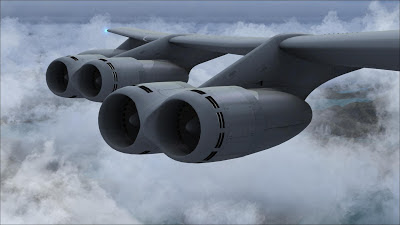There are dangers in seeking efficiency above all other values in social and material engineering. Redundancy and efficiency are often two sides of the same coin.
Here at The Pragmatist, we really value
efficient government and energy distribution systems. Going as far as to promote a special branch of police under the executive to
make periodic efficiency audits and raids on various organizations
and key institutions to see how they could be streamlined (a
21st century throw back to the efficiency movement of 100
years go).
Having said that, we must keep in mind a few things:
1) Increasingly high tech advanced planetary civilization has very elaborate hierarchies fed by ever more complex energy feeds, human capital feeds, and resource production/distribution chains. This makes many of said hierarchies (and institutions they oversee) more fragile than they appear and this fragility will continue to increase. The amount of various environmental and social shocks will continue to increase as well and exert unexpected devastating ripple effects. For example, the recent Japanese earthquake/tsunami has made many machine part assembly lines go offline for months causing ripple effects in large economies oceans away. Considering that many of the advanced countries on earth are and will continue to be plagued by gerontocracy (US and Japan spring to mind), these shocks will be even more severe. That is, since the effectiveness of government institutions in the 21st century will be measured by how rapidly they absorb, comprehend, and meaningfully respond to new and novel stimuli. Just like a biological body of a young athlete versus the one in a nursing home.
2) Greater societal efficiency is not incompatible with having larger government as this Pragmatist piece has shown. Technology allows dramatically more government services, more redundancy (more on that later), while raising overall societal efficiency. The false artificial monetarist dichotomy between "spending and cutting" is no longer relevant as will soon be discovered by popular consciousness. The effectiveness and quality rather than the quantity of government red tape is at issue. Systems alongside expansion/contraction of the money/debt token supply system can also co-exist without a problem. Even the popularly hated neoliberal propaganda outlet, The Economist, begrudgingly acknowledged the successful expanding statism of Norway that is acquiring leaner/efficient characteristics while also preserving and expanding human autonomy:
"And as the Asians introduce welfare states they too will look to the Nordics: Norway is a particular focus of the Chinese."
[ sidenote: There are also other very macro institutional efficiency creating political mechanisms that were mentioned by The Pragmatist. These are to be addressed at the highest levels of nation states and political subunits. We wont go into into this again presently.]
3) We also recognize that human beings
have physiological and affective needs of safety, security, and that their sole
purpose is not subservience to keeping mechanical and social
arrangement at being maintained at “peek efficiency”, "equilibrium","stasis", "calculated material expansion within narrowly defined band", etc.
Very often
when you hear theorists talk of making the economy or society more
efficient they are really talking of streamlining financial flows to
the controllers and top tiers of society. A good and rather
ridiculous argument from the side of efficiency is the concept of
“natural unemployment” within 3-4% range. Proponents of such
inhuman and relatively recent bourgeois concept say it makes economy as
a whole more "efficient" with competition among wage slaves fluid and
dynamic bringing the best fit for the job. In this case, it is not
really the entire economy that is being made more efficient but
efficiency applied to streamlining the profit generation of
stockholders, management, and well to do controllers.
The recent news of the United States
Post Office deciding to stop mail delivery on Saturdays by August
2013 is a good example of how some societal functions should not be
subject to overall efficiency/for profit standards (obviously new
technologies should be implemented and efficiency increased on a
micro level without losing sight of the larger picture). Efficiency would really not be cutting overall reach of post office but expand it to operate 24/7 by robotics at 2/3 of current electrical energy and material expense.
The value of Redundancy in the Societal Sphere
Sometimes the safety of society and
human welfare requires extra efforts towards redundancy, reliability,
predictability, and multiple non-profit driven fail safe guards.
Efficiency: accomplishment of an
ability to accomplish a job with minimum expenditure of time and
effort
Redundancy: the provision of
additional or duplicate systems, equipment, etc., that function in
case an operating part or system fails, as in a spacecraft
Let's take for
instance a jumbo jet passenger airplane. Many people feel fear at absolute psychological lack
of control when sitting in an enormous metal whale with tiny wings. They have to put total trust in computer navigation systems and the
engineering behind the giant engines and the plane's tail (most
plane crashes result due to the stabilizing tail falling off).
A redundant
transport jumbo jet system would look at the concept of A-10 Thunderbolt 2 (warthog) military plane that is
an armored tank and is designed to fly even if 1 of 2 engines, 1 of 2 plane tails, and half of one wing is missing. Redundancy is absolutely compatible with human
welfare while efficiency often isn't. The enormous airbus A380 only has 4 engines and 1 tail while the new Boeing 787 also has 1 tail and only 2 giant engines overall regardless the giant size.
Perhaps a lesson can be learned from Antonov An-225 Mriya that has 3 engines on
each wing, two tails, as well as ability to accommodate an additional
engine on top of its tail intersection and on its back (it carried a space shuttle on its back once so not a big deal).
This is a good visualization and example of efficiency suffering at the hands of extra physical redundancy (in additional to existing triple module redundancies practiced on planes) yet less efficiency in this case extends the lifespans of thousands upon thousands of humans and cargo. Governments can subsidize the extra fuel for these extra engines by cutting down on plane sorties over many primitive occupied territories.
 |
| ISS uses more major redundant systems and subsystems than many hurricane prone areas even though far less humans and money is on the line |
If one could visualize a technologically complex 21st century civilization as being a heavy duty airplane (the airplane in this comparison, regardless of whether it is the Shuttle, is still a lot less complex than human society), then we need to make our society the Antonov An-225 Mriya with additional engine on the tail, on the belly, and on the back. This means redundancy in agricultural production systems (vertical farming), parallel self sustaining seats of government in cities designed to govern from scratch, satellite cities to experiment with mass producing ways out of systemic shocks, research and development clusters, and many others. In a globalized world that is increasingly functioning as one giant country, we can't put all our eggs in one basket/country whether the basket produces electronics, food, human capital, or raw materials. There needs to be more so called eggs, they need to be smaller, they need to be more decentralized (and tastier and more energy rich, you get the point). Same goes for the baskets.
Redundancies can
be expanded into many territories of society in both material and intangible realms. This would keep economic costs from repair and from disruption down.
Other redundancies should naturally be scrapped. Rather than having 15 intelligence/police agencies all performing similar tasks and poorly sharing information and time in the limelight due to ego concerns, it often makes sense to consolidate certain government agencies and institutions as much as possible. As written previously, with sufficient technology a modern policeman may do the job of 5+ policemen from the late 20th century. Many economists on both
sides of the political isle often argued for public transport to be
free and not rely on profit due to the enormous range of total social
and GDP benefits of unlimited flow of human capital. Eliminating the redundancy of various subway and metro controllers and ticket checkers while doubling the number of repairmen and actual railroads (more parallel railroads are redundant yet better than the most efficient one after another train scheme on just one) will do a lot more for smoothing the functioning of not just transport but the human herd at large.
We will return to proper balance between redundancy and efficiency in later articles. We are beginning to see that these are sides of the same coin. A society is perhaps less than an airplane but even more like a body. An increasingly overburdened, sickly, and ever more connected and skilled body may require a couple extra kidneys, another heart, another liver, more eyes as well as a hyper efficient new cybernetic/neural circulatory system to keep all of this feel the lightness as if only 1 or 2 organs exist at all!









.jpg)









